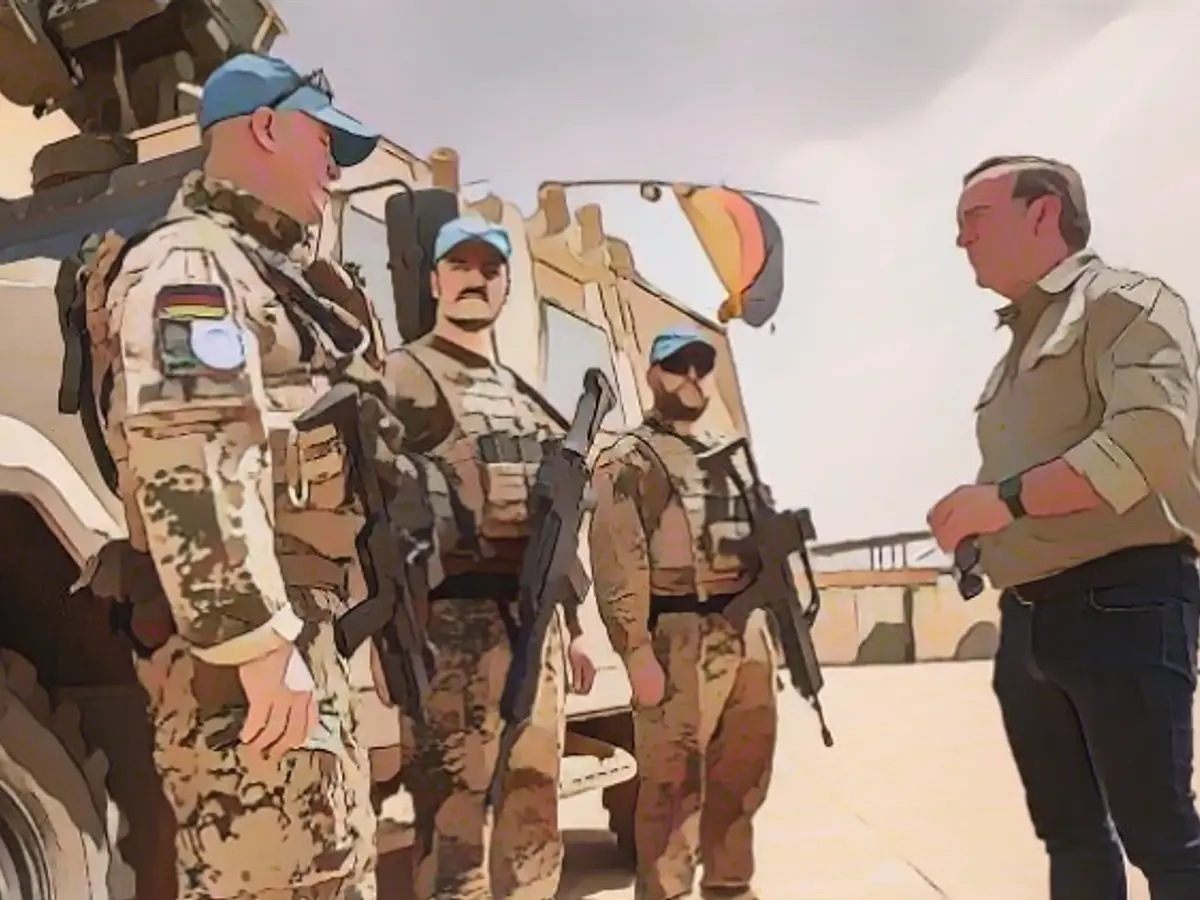Bundeswehr Bids Farewell to Mali After Decade-Long Mission
The German armed forces, or Bundeswehr, have officially concluded their mission in Mali, marking the end of a decade-long deployment. The last soldiers departed from Camp Castor near Gao airport, heading for a stopover before returning to Germany.
This marks the conclusion of Bundeswehr's second significant deployment outside Europe, following its mission in Afghanistan. Mali's mission was particularly challenging, with two German pilots losing their lives in a helicopter crash in 2017 and twelve soldiers wounded in a suicide attack in 2021. Over the years, approximately 20,000 German peacekeepers participated in the UN mission.
Camp Castor, the center of the German contribution to UN troops, was handed over before the soldiers' departure. In Bamako, only a few German soldiers remained in the previous MINUSMA headquarters. The UN peacekeeping mission conducted a formal closing ceremony there on Monday, with blue helmets from 53 countries participating.
Post-Bundeswehr withdrawal, Mali turns to controversial partners
Mali's military government demanded the withdrawal of all 12,000 UN peacekeepers in mid-June. Over the past months, the country has strengthened its partnership with Russia, which has led to the deployment of Russian mercenaries for future military operations. Critics argue that this decision has raised concerns due to reports of human rights violations committed by Malian soldiers and Russian mercenaries, leading to the UN Security Council's initiation to end MINUSMA.
Tensions persist in the region, with a German military convoy currently stuck in customs clearance on the Nigerien side of the border with Mali.
Additional Insights:
Mali's decision to partner with Russia can be attributed to several factors:
- The French withdrawal created a power vacuum, prompting the need for alternative military support.
- Russia has been expanding its military presence in Africa, specifically Mali, providing training to local forces and supporting them in combating jihadi groups.
- Mali has been seeking greater military support in the face of ongoing jihadist insurgency, resulting in the supply of equipment and hardware from Russia.
- Local resistance and international dynamics have not deterred Mali from bolstering its military capabilities through Russian support.
References:
- "Mali: Why Ally with Russia and Russia's Wagner Group?" Foreign Policy Research Institute. 2021,
- "Mercs and Sand: Putin's Africa Agenda." Council on Foreign Relations. 2020,
- "Russia Delivers over 100 Military Vehicles to Mali." Al Jazeera. 2020,
- "Mali Seeks Russian Help to Counter Islamist Insurgency." Voice of America. 2022,
The German withdrawal from Mali marks the end of a challenging decade-long mission. In its place, Mali has sought to strengthen its partnership with Russia and deploy Russian mercenaries, a move that has sparked controversy and concern due to reported human rights violations. With tensions persisting in the region, it remains to be seen how this partnership will unfold in the future.





